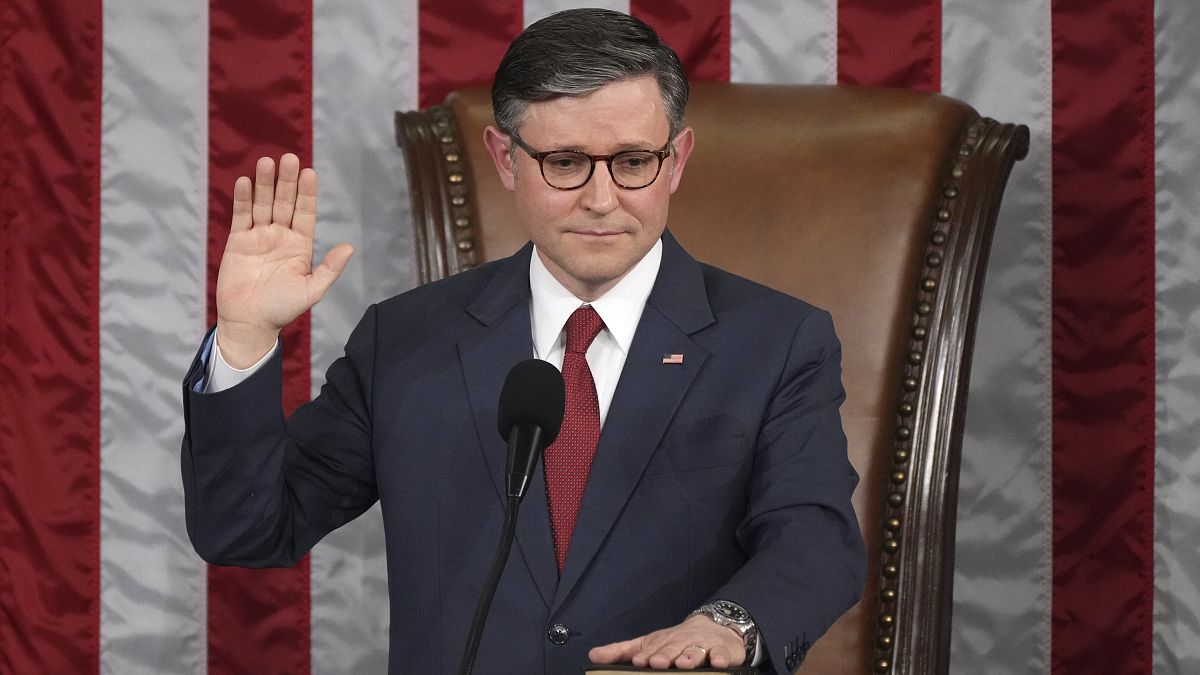Mike Johnson narrowly won re-election to the House speakership, overcoming hard-right GOP holdouts with support from President-elect Donald Trump, leading to a tense standoff and a tight vote tally of 218-215. Johnson vowed to reject business as usual and cut back the size and scope of government in his first speech with the gavel, struggling to maintain power amidst challenges. The House Democratic leader emphasized the need to come together and put party politics aside to accomplish tasks for Americans.
The day of new Congress sessions, traditionally a ceremonial event for swearing in newly-elected lawmakers, has become a high-stakes vote for the office of House speaker, a powerful position in Washington. While the Senate has already elected party leaders, the House must first elect its speaker, making it a critical decision with far-reaching implications. Vice President Kamala Harris was tasked with swearing in the senators, highlighting the importance of the day’s proceedings in both legislative chambers.
In a display of political intrigue and maneuvering, Johnson managed to secure the speakership with Trump’s endorsement and support. The vote brought about a tense atmosphere in the House chamber, with hardline Republicans causing uncertainty and turmoil before ultimately aligning behind Johnson. Despite facing challenges to his authority and leadership, Johnson emerged victorious and pledged to implement significant changes in government operations, reflecting his commitment to a different approach to governance.
The evolution of the House speaker election process from a ceremonial event to a decisive vote underscores the shifting dynamics in Washington politics. The role of the speaker is crucial, as it represents the second-highest position in the line of presidential succession and holds significant power in legislative matters. Trump’s involvement in endorsing Johnson and securing the outcome of the vote highlights the importance of party unity and support in maintaining leadership positions within the Republican Party.
The close vote margin and internal dissent among Republicans underscore the challenges Johnson faces in maintaining his position as House speaker. While Trump’s backing provided a boost to Johnson’s candidacy, it also highlighted the fragile nature of political alliances and the need to navigate internal party dynamics. Johnson’s victory represents a pivotal moment in the transition of power in Washington, as the Republican Party seeks to implement its agenda of tax cuts and mass deportations under unified control of the government.
Moving forward, Johnson’s ability to lead effectively and navigate the complexities of Washington politics will be closely watched. The outcome of the House speaker election sets the tone for the legislative agenda and priorities of the Republican Party, shaping the direction of governance in the coming years. Johnson’s promise to reject business as usual and enact significant changes reflects a desire for transformative leadership, yet the challenges ahead suggest a bumpy road ahead for both him and Trump’s ambitious agenda.










